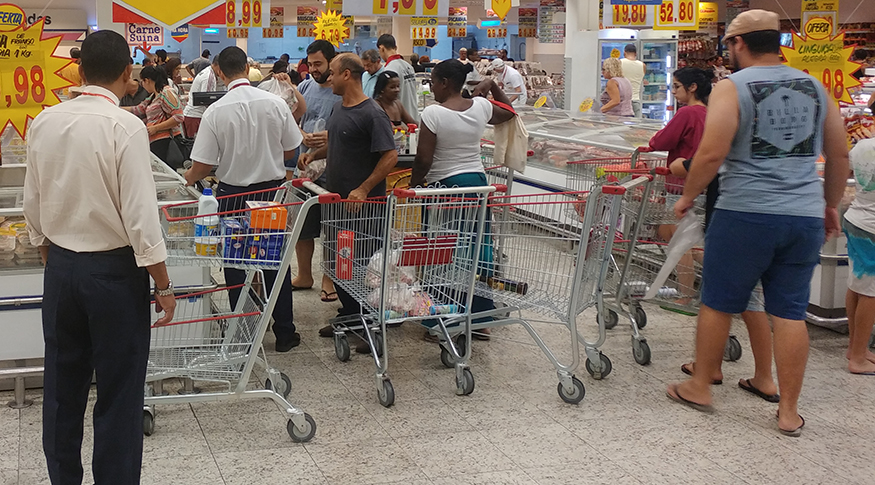IPCA
Inflation decelerates to 0.07%, the lowest for March since economic measures of Plano Real
April 09, 2020 09h00 AM | Last Updated: April 14, 2020 04h24 PM

After registering a rise of 0.25% in February, the official inflation in Brazil decelerated to 0.07% in March, according to the Extended National Consumer Price Index - IPCA released today (9) by the IBGE. This was the lowest result for March since the beginning of the Real Plan, in July 1994. The indicator accrues a rise of 0.53% in the year and of 3.30% in the last 12 months.
The IPCA shows that eating at home became more expensive. The prices of the group of food and beverages accelerated from 0.11% in February to 1.13% in March, mainly due to food at home (1.40%). "The figures suggest that people are spending more to eat at home, which points out that they are not going out to eat", commented Pedro Kislanov, manager of the survey.
The highest rises were recorded in the prices of carrots (20.39%), onions (20.31%), tomatoes (15.74%), potatoes (8.16%) and hen eggs (4.67%). On the other hand, meat dropped (-0.30%) for the third month in a row, though the retreat in the prices was less intense compared with that in February (-3.53%).
Most of the other groups that comprise the indicator also rose, highlighted by education (0.59%), which posted the second highest positive change, followed by housing (0.13%), wearing apparel (0.21%), health and personal care (0.21%) and communication (0.04%). Personal expenses declined 0.23%.
Although the highest deflation was registered by household articles (-1.08%), the biggest negative contribution (-0.18 p.p.) was recorded by the group of transportation (-0.90%), which pressed the inflation downward, with another retreat in the prices of airfare (-16.75%) and fuels (-1.88%). Every fuel dropped in March: ethanol (-2.82%), diesel fuel (-2.55%), gasoline (-1.75%) and vehicular gas (-0.78%).
The prices of airfare had been dropping over the last months. Therefore, it is still not possible to state whether this month´s decline is related to the coronavirus. "The change in March reflects prices collected in January for those who intended to travel in March. Hence, we cannot state that it is related to the pandemic. It seems that it was due to the demand itself", said Kislanov.
Four regions have deflation
Among the 16 areas surveyed by the IBGE, four registered a deflation in March. The lowest index was recorded in Goiânia (-0.74%), due to the drops in the prices of electricity (-6.67%) and gasoline (-3.25%). It was followed by Porto Alegre (-0.32%), Brasília (-0.22%) and Belém (-0.16%).
Conversely, the highest result was reported in the municipality of Campo Grande (0.56%), as a result of the increases in tomatoes (21.20%) and gasoline (0.52%). Rio de Janeiro (0.46%), Aracaju (0.41%), São Luís (0.37%) and Recife (0.31%) also registered the highest inflation rates.
INPC rises 0.18% in March
The IBGE also released the National Consumer Price Index - INPC, used as a reference for the wage adjustments of families with an income between one and five minimum wages. The indicator rose 0.18% in March, above the rate of 0.17% recorded in February. The INPC changed 0.54% in the cumulative index in the year and increased 3.31% over the last 12 months.
Remote price collection
This is the first release of the IPCA and INPC whose prices were remotely collected. Last March 18, the IBGE halted the price collection at the points of sales due to the coronavirus pandemic. As of this date, prices began to be collected through other means, such as surveys on Internet sites, by phone or email.
According to Pedro Kislanov, the interruption of the on-site collection reduced the amount of prices collected, though this did not produce any problem for the analysis. "We managed to overcome the difficulties with the remote collection. In some cases, the answer was quite positive, like in gas stations, in which most of the prices were collected by phone. Like in many statistical offices in the world, we are looking for ways to avoid a significant reduction of our sample," concluded him.




















